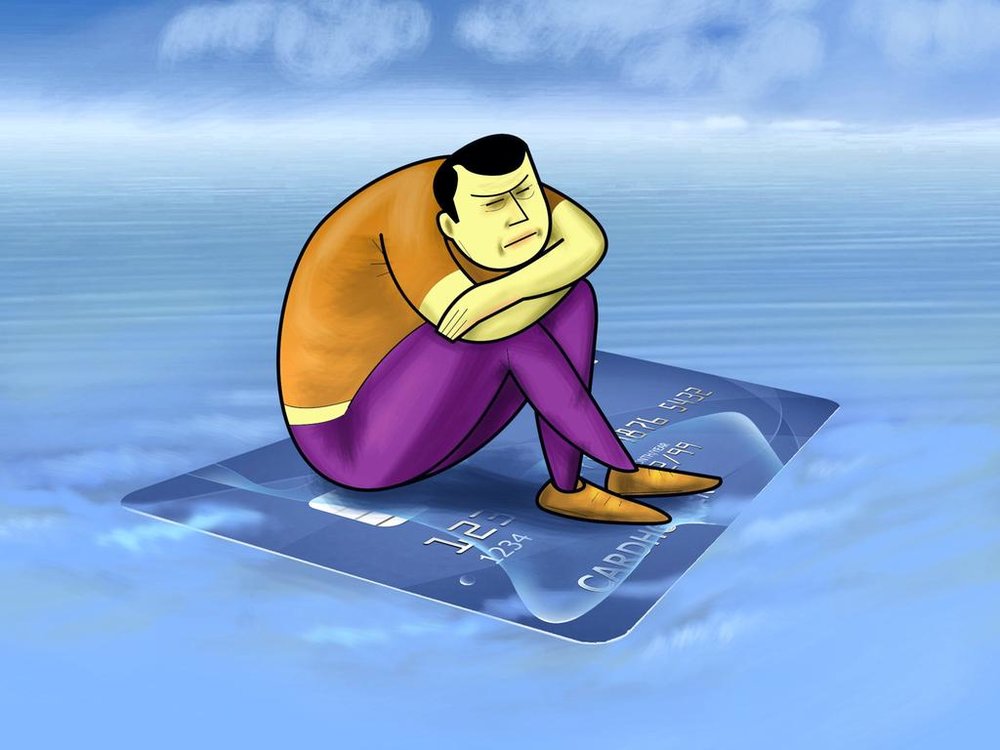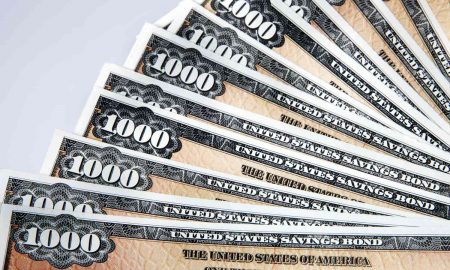
Americans Have Poor Basic Finance Know-How, Says Recent Study

Americans excel in a lot of things. This race has been a pioneer in technology and had sparked a revolution. Unfortunately, Americans are quite poorly equipped when it comes to finances. While they have enjoyed how it is to be in the land of the free, they might not have grown when it comes to spending money the right way. Here are some facts about the spending habits of the average American:
Few Americans are Financially Literate
Financial literacy is just as important as learning table manners, a language or other basic life skills. This is why the term “literate” is used to describe a person’s financial aptitude because you are comparable to an uneducated individual if you have poor money IQ.
While Americans enjoy a better economy and benefits than most other countries in the world, they are not necessarily the best when it comes to handling finances. A recent study shows that only 57% of Americans are financially literate. This, of course, is not that bad but is lower than Denmark, Sweden and Norway who are tied for first place with 71%.
Americans Have More Debt Than Ever

Americans have more debt than savings
Cold cash is not always available and this is why credit transactions have been on the rise. While you might not have the money now, you might entertain the thought that you might have it in the future and that is why while you do promise to pay, this will be at the expense of property if you are not able to do so.
True enough, there are more mortgages now than ever. Student loans have reached an all-time high, and it does not look like Americans are slowing down soon. The thought of not having money at the moment but having them soon enough has already been defeated by the convenience of getting a loan since more and more Americans are not really aware of the real dangers of this mechanism.
Americans Do Not Save Enough

Only 37% of Americans have just enough savings to pay for an emergency
According to a fairly recent survey, only 37% of Americans have just enough savings to pay for an emergency which could set them back for about $500 or $1,000. If you think about it, this does not really mean much as a broken refrigerator or tripping on a wire can already set you back for that much. As for the other 63%, the would have to resort to other alternative measures such as charging to a credit card, borrowing from friends and family or selling their belongings to meet the costs of an unexpected event.
The terrible saving habits of Americans is not exactly new, as previous reports have said that one in three American families do not have savings at all. In another survey, it was discovered that 56.3% of people have less than $1,000 in their checking and savings account.
Why Financial Literacy is Important
Financial experts and authors Leora Klapper, Peter von Oudheusden and Annamaria Lusardi wrote that financial ignorance “carries significant costs.” They add that consumers who do not understand the concept of interest compounding end up spending much more on transaction fees, having bigger debts and end up getting higher interest rates when getting loans. This pushes them to borrow more and saving less.
Sound financial literacy is more important nowadays where financial products are getting more complex and are easily available to more and more people. While banks and governments are pushing access to financial services, credit products are rising more rapidly.
There is Still Room for Improvement
While these figures look less than impressive, the researchers hope that these numbers push more people to stand up for themselves and make efforts to educate themselves about finance. While technology is evolving and banking and financial tools are spreading, it is very critical that the modern American be equipped with the necessary amount of literacy to take advantage of more accessible financial tools while not getting defeated by their setbacks.
The financial habits of Americans might not be in the best shape now, but this does not mean that everything is over for them. American families have gone through a lot of challenges already, so this is not anything new. What do you think of how the average American deals with finances? What steps should individuals and the government take to improve financial literacy? Share your thoughts with us in the comments below.
More in Financial Adviser
-
Brewing Controversy: Unraveling the Bud Light Boycott
In a world fueled by opinions, the recent Bud Light boycott has stirred quite the commotion. It’s not your typical tale...
December 7, 2023 -
How LVMH Became a $500 Billion Luxury Empire
LVMH Moët Hennessy Louis Vuitton is a name synonymous with luxury and opulence. The brand has crafted not just products but...
December 2, 2023 -
Women Spend 20% More Per Year on Out-of-Pocket Health Costs
A recent report from Deloitte has brought to light a concerning issue in the world of healthcare – women spend a...
November 24, 2023 -
How Sound Baths Can Soothe Your Mind, Body and Soul
Have you ever been so caught up in a song that you felt the world melt away? Music, in its many...
November 18, 2023 -
What to Know Before Rebalancing Your Investment Portfolio
Managing an investment portfolio is akin to steering a ship through ever-changing waters. Periodic adjustments are necessary to ensure you stay...
November 11, 2023 -
Jeff Bezos and Fiancée Lauren Sánchez’s Extravagant $500 Million Superyacht
Get ready to set sail on a journey into the opulent world of Amazon founder Jeff Bezos and his fiancée Lauren...
October 31, 2023 -
How to File Your Taxes: A Comprehensive Guide
Filing your taxes can be daunting, but with the right knowledge and preparation, it doesn’t have to be overwhelming. Taxes are...
October 26, 2023 -
Make Your Kids Mini Master Chefs | Here’s How
For many of us, the kitchen is the heart of our homes – a place where magic happens, one dish at...
October 19, 2023 -
Deciphering Stock Market Sell Signals
In the fast-paced world of stock trading, understanding when to sell your investments is just as crucial as knowing when to...
October 12, 2023















You must be logged in to post a comment Login